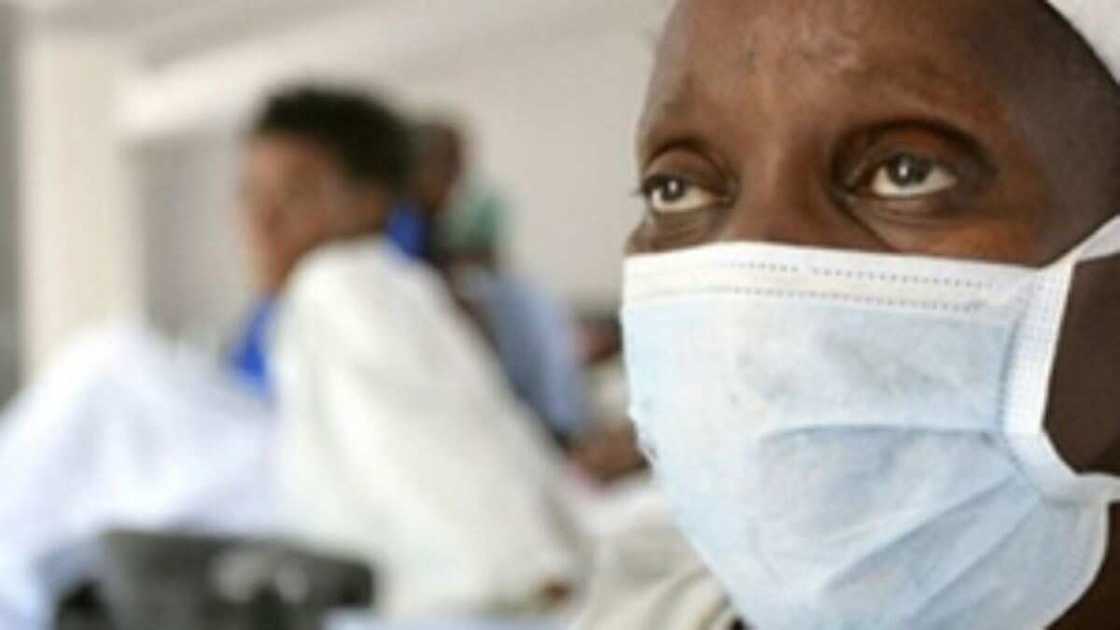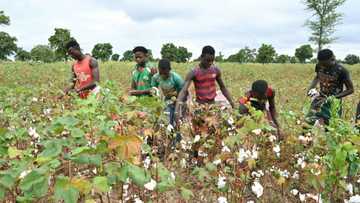'It's Better Imagined Than Experienced', TB Survivor Calls for Improved Post-Treatment Care
- There is a need for survivors of Tuberculosis in the country to be adequately taken care of, an advocate has said
- Adebola Adams who also survived the disease called for a state of emergency to be declared on all forms of TB management in Nigeria
- According to Adams, survivors of TB need good nutrition, psycho-social care among many others to reintegrate into the system
A survivor of Tuberculosis in Nigeria, Adebola Adams has called for improved post-treatment care for people affected by the disease.
Speaking at a media roundtable, a strategic initiative of Stop TB Partnership Nigeria, which was attended by Legit.ng, Adams who is the national coordinator of the TB People Nigeria called on the Federal Government to declare of a state of emergency on all forms of TB management.
TB is a bacterial disease caused by Mycobacterium Tuberculosis which mainly affects the lungs and is spread when an infected person coughs or sneezes.

Source: UGC
The disease presents with symptoms including cough (sometimes blood-tinged), weight loss, night sweats and fever.
PAY ATTENTION: Share your outstanding story with our editors! Please reach us through info@corp.legit.ng!
Treatment for TB especially in active patients will require a long course involving multiple drug use to ensure that the disease is completely eliminated.
However, Adams noted that while the treatment of TB is free across states in the country, post-care for survivors which is key to their survival lacks the adequate attention needed.
Her words:
"Be it latent, drug-sensitive, drug-resistant TB which could be pulmonary or extra plumonary by employing preventive measures, curative and pallaitive measure whihc is the most recent."
Adams said that Nigeria also needs to put more effort and invest in preventing TB through various available measures including the use of vaccines and TB preventive therapy (TBT).
She added:
"TB is better imagined than experineced, so I would like to call on scientists to come up with vaccines, I understand a lot are in the pipeline.
"On the issue of preventive therapy, sometimes when you visit the facility, they will tell you that there is a store count and they cannot administer TBT to relatives of those with TB."
Describing these situations as dangerous, Adams said with the rate of poverty in Nigeria which is the key contributing factor to TB challenges, such decisions do not sit well in the fight to stop the disease by 2023.
Adams noted:
"TB treatment though it is free post-treatment care is expensive. If you're going to treat TB holistically, you need good food, you need rest and quality drugs and the average Nigerian can barely afford two good meals a day."
She also stated that good food has become a luxury for many Nigerians and that there is a need to ensure that success is recorded even after the last pill for treatment is taken by a survivor.
The TB survivor further called for improved psychosocial and financial support plans for TB survivors to enable them to be fully reintegrated into society.
Nigeria is not on track to end TB by 2030
In his address, Suvanand Sahu, the deputy executive director of Stop TB Partnership said that it is heartbreaking that Nigeria is not on track with the Sustainable Development Goals (SDGs) to end Tuberculosis in the country by 2030.
Sahu however, said that there is still hope for Nigeria should the country align with the global plan to end the disease by 2030.
The Stop TB Partnership had unveiled a costed plan for the world to end TB 2023- 2030, the second leading infectious disease killer in the world, after COVID-19.
The Global Plan outlines the priority actions and estimated financial resources needed to end TB as a global health threat by 2030.
But Sahu added that a global investment of US$250 billion could save millions of lives through early diagnosis and treatment of 50 million people with TB across the world.
According to him, the development, approval and distribution of new TB vaccines; and the redoubling of efforts to tackle emerging crises like the COVID-19 pandemic or conflicts, like the ongoing war in Ukraine, do not derail the programmes.
He added that vaccine development has been in the pipeline for a while but has faced funding challenges.
His words:
“The total amount of funding needed to support the Global Plan's ambitions is the equivalent of every person in the world donating US$4 per year for the next eight years.
“The economic return on this investment would amount to US$40 for every US$1 invested and as much as US$59 for every US$1 invested in low- and middle-income countries. If, instead, the status quo is maintained."
COVID-19 pandemic and way forward for TB prevention and treatment
Sahu noted that the mRNA vaccines like the ones used against COVID-19 can be repurposed through technology to serve the prevention of TB.
He said:
"We hope that they progress fast with that in terms of reduced prices and make it kore accessible to countries in Africa."
Also speaking, the national coordinator for the National Tuberculosis, Buruli Ulcer, and Leprosy Control Program (NTBLCP), Chukwuma Anyaike confirmed that Nigeria has the first compendium on best practices for the control of TB.
He added that WHO’s post-2015 strategy adopted by the World Health Assembly in 2014 aims to end the global TB epidemic.
This he said is part of the newly adopted Sustainable Development Goal.
Experts say Nigeria experiencing 70% funding gap in fight against Tuberculosis
The Nigerian government had been asked to improve its commitment in the fight against Tuberculosis in the country.
The call was made by some experts from the KNCV Foundation in the country on Wednesday, July 14.
Financing, the COVID-19 pandemic and many others have affected the ongoing fight against Tuberculosis in Nigeria.

Read also
Avec ses tables et chaises alignées et le matériel médical, le gymnase, dans un lycée de Brooklyn, a tout d'un centre de vaccination anti Covid: mais c'est pour la variole du singe qu'il a ouvert dimanche à New York, "épicentre" américain de l'épidémie.
Tuberculosis worse than coronavirus - Experts
As the fight against coronavirus continues at all levels of government, experts had raised the alarm over another deadly disease -tuberculosis.
While coronavirus kills about 60 people daily, tuberculosis kills over 3,000 people daily worldwide.
In Nigeria, 18 people die every hour of tuberculosis while nearly 4,500 people lose their lives to the disease globally.
Source: Legit.ng






